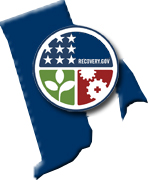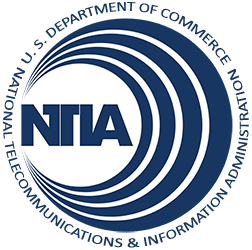Broadband’s ability to expand educational and employment opportunities is especially meaningful for Americans who are deaf or hard of hearing, a community that faces unique challenges in education and that suffers from a rate of unemployment much higher than the national average. Communication Service for the Deaf, Inc. (CSD) intends to expand broadband adoption among people who are deaf and hard of hearing and provide them with online tools to more fully participate in the digital economy. The project proposes to employ a combination of discounted broadband service and specialized computers, technology training from an online state-of-the art support center customized to the community’s needs, public access to videophones at anchor institutions from coast to coast, and a nationwide outreach initiative. Thousands will gain online access to all the Internet has to offer, including sign language interpreters, captioned video services, and other content and functionalities designed especially to advance their educational, employment, and healthcare interests.
Rhode Island

| Grantee | Total Award | Type |
|---|---|---|
| Communication Service for the Deaf, Inc. | $14,988,657 | Sustainable Adoption |
| One Economy Corporation | $28,519,482 | Sustainable Adoption |
| OSHEAN Inc. | $1,245,500 | Public Computer Centers |
| OSHEAN Inc. | $21,739,183 | Infrastructure |
| Rhode Island Economic Development Corporation | $4,544,787 | Broadband Data & Development |
| University Corporation for Advanced Internet Development | $62,540,162 | Infrastructure |
The 21st Century Information and Support Ecosystem project proposes to implement a comprehensive program of computer training, wireless Internet access, broadband awareness marketing, and online content and applications to residents of 159 affordable and public housing developments and low-income communities in 50 cities and towns across 31 states and the District of Columbia. The project plans to implement four principal programs: training 2,500 youth to become “Digital Connectors” who will then provide digital literacy training to others in their communities; deploying localized broadband networks in public housing developments; developing online content and applications aimed at low-income, low-literacy audiences.
The Beacon 2.0 Library Computer Center project proposes to expand computer capacity at all 71 Rhode Island public libraries across the state and create 10 mobile computer centers. These mobile computer centers will allow OSHEAN Inc. to bring computer training and access into underserved and geographically dispersed communities with high rates of unemployment. OSHEAN Inc. intends to replace 327 existing computers and add more than 400 new workstations in libraries, with a goal of serving more than 6,900 additional users per week.
Rhode Island’s Ocean State Higher Education Economic Development Administration Network (OSHEAN) is proposing a new fiber-optic backbone network to connect community anchor institutions and offer interconnection points for local broadband providers in all five counties in the state, as well as Bristol and Plymouth Counties in southeastern Massachusetts. The BEACON 2.0 network proposes service speeds between 1 Gbps and 10 Gbps to community-serving-institutions to enable higher education, research, remote healthcare, and many kinds of economic development and job training applications. The network would serve 14 university and community college locations, including the Community College of Rhode Island, New England Institute of Technology, University of Rhode Island, and the Naval War College. The project also plans extensive engagement with public safety entities, including the Rhode Island State Police and the Narragansett Indian Tribal Police, to enable rapid data and video transfer.
Project Components
State Broadband Capacity Building:
With this funding, the State of Rhode Island will create a state broadband office that will assess the barriers to broadband adoption and usage in the state. The office will benchmark the state’s progress over a four-year period; develop a plan to improve broadband availability and usage in the state, utilizing input gathered through a series of community meetings over the course of the project; and create partnerships with the private and public sectors to facilitate greater broadband deployment and adoption.
Technical Assistance:
The Rhode Island Economic Development Corporation (RIEDC), in partnership with Ocean State Libraries and the Rhode Island Office of Library and Information Services, will adopt a standardized digital literacy curriculum and provide relevant training to librarians and other staff across the state.
Application Usage and Development:
This investment will support two application development projects. In the first, RIEDC will support Rhode Island’s public safety community as it begins planning for a citizen-focused online notification system. This system will create a unified and transparent source of information for Rhode Island’s residents. The second project, a collaboration with the Rhode Island-based non-profit organization, Urban Ventures, will support and document the implementation of a “virtual incubator,” which supports the development of micro-entrepreneurs as they seek to incubate their businesses and access potential state resources.
Data Collection, Integration, and Validation:
This project was originally funded for broadband planning activities and two years of data collection. In September of 2010, this project was amended to extend data collection activities for an additional three years and to identify and implement best practices.
Address File Development:
The Office of Information Technology will collect and improve current county data and deploy a crowdsourcing tool to improve address file quality. OIT will conflate that information with data from the Rhode Island Department of Motor Vehicles and the Secretary of State’s Office. This project includes additional support to train emergency service personnel to collect and verify address location information.
As part of a longstanding project to connect essential community anchor institutions across the country, and facilitate closer collaboration and long-term benefits for education, research, healthcare, public safety, and government services, the University Corporation for Advanced Internet Development (UCAID) proposes a comprehensive 50-state network benefitting approximately 121,000 community anchors. The project proposes a large-scale, public-private partnership to interconnect more than 30 existing research and education networks, creating a dedicated 100-200 Gbps nationwide fiber backbone with 3.2 terabits per second (TBps) total capacity that would enable advanced networking features such as IPv6 and video multicasting. The project plans to connect community anchors across all disciplines into virtual communities with shared goals and objectives, including colleges, universities, libraries, major veterans and other health care facilities, and public safety entities, with additional benefits to tribes, vulnerable populations, and government entities.
